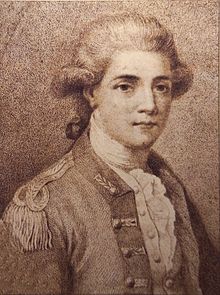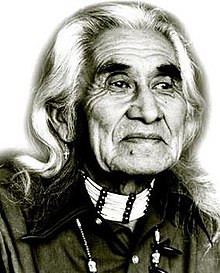September 23 is the 266th day of the year (267th in leap years) in the Gregorian calendar. There are 99 days remaining until the end of the year.
It is frequently the day of the autumnal equinox in the Northern Hemisphere and the day of the vernal equinox in the Southern Hemisphere.
Holidays
- Christian feast day:
- Celebrate Bisexuality Day (Bisexual community)
- Grito de Lares (Puerto Rico)
- Holocaust Memorial Day (Lithuania)
- National Day (Saudi Arabia)
- See You at the Pole (International)
- Teachers’ Day (Brunei)
History

In 63 BC, Augustus, Roman emperor born (d. 14)
In 1122, Pope Callixtus II and Holy Roman Emperor Henry V agree to the Concordat of Worms to put an end to the Investiture Controversy.
In 1215, Kublai Khan, Mongolian emperor born (d. 1294)

In 1338, The Battle of Arnemuiden was the first naval battle of the Hundred Years’ War and the first naval battle using artillery, as the English ship Christofer had three cannon and one hand gun.
In 1409, Battle of Kherlen, the second significant victory over Ming China by the Mongols since 1368.
In 1459, Battle of Blore Heath, the first major battle of the English Wars of the Roses, is fought at Blore Heath in Staffordshire.
In 1568, Spanish naval forces rout an English fleet, under the command of John Hawkins, at the Battle of San Juan de Ulúa near Veracruz.
In 1641, The Merchant Royal, carrying a treasure worth over a billion US dollars, is lost at sea off Land’s End.
In 1642, First commencement exercises occur at Harvard College.
In 1779, American Revolution: John Paul Jones on board the USS Bonhomme Richard wins the Battle of Flamborough Head.

In 1780, American Revolution: British Major John André is arrested as a spy by American soldiers exposing Benedict Arnold‘s change of sides. He was hanged as a spy by the Continental Army for assisting Benedict Arnold‘s attempted surrender of the fort at West Point, New York, to the British. André is typically remembered favorably by historians as a man of honor, and several prominent U.S. leaders of the time, including Alexander Hamilton and Marquis de Lafayette, did not agree with his fate.
In 1803, Second Anglo-Maratha War: Battle of Assaye between the British East India Company and the Maratha Empire in India.
In 1806, Lewis and Clark return to St. Louis after exploring the Pacific Northwest of the United States.
In 1821, Tripolitsa, Greece, is captured by Greek rebels during the Greek War of Independence.
In 1845, The Knickerbockers Baseball Club, the first baseball team to play under the modern rules, is founded in New York.
In 1846, Astronomers Urbain Jean Joseph Le Verrier, John Couch Adams and Johann Gottfried Galle collaborate on the discovery of Neptune.
In 1868, Grito de Lares (“Lares Revolt”) occurs in Puerto Rico against Spanish rule.
In 1889, Nintendo Koppai (Later Nintendo Company, Limited) is founded by Fusajiro Yamauchi to produce and market the playing card game Hanafuda.
In 1899, American Asiatic Squadron destroys a Filipino battery at the Battle of Olongapo.
In 1905, Norway and Sweden sign the “Karlstad treaty”, peacefully dissolving the Union between the two countries.
In 1908, University of Alberta in Alberta, Canada, is founded.
In 1909, The Phantom of the Opera (original title: Le Fantôme de l’Opéra), a novel by French writer Gaston Leroux, is first published as a serialization in Le Gaulois.
In 1913, Roland Garros of France becomes the first to fly in an airplane across the Mediterranean (from St. Raphael France to Bizerte, Tunisia).
In 1932, The Kingdom of Hejaz and Nejd is renamed the Kingdom of Saudi Arabia.
In 1936, First ascent of Siniolchu by a German team.
In 1938, Mobilization of the Czechoslovak army in response to the Munich Crisis.
In 1942, World War II: The Matanikau action on Guadalcanal begins U.S. Marines attack Japanese units along the Matanikau River.
In 1943, World War II: The Nazi puppet state the Italian Social Republic is founded.
In 1950, Korean War: The Battle of Hill 282 the first US friendly-fire incident on British Military personnel since World War II occurred.
In 1952, Richard Nixon makes his “Checkers speech“.
In 1959, Iowa farmer and corn breeder Roswell Garst hosts Soviet premier Nikita Khrushchev.
In 1959, The MS Princess of Tasmania, Australia’s first passenger roll-on/roll-off diesel ferry, makes her maiden voyage across Bass Strait.
In 1962, The Lincoln Center for the Performing Arts opens in New York City.
In 1969, The Chicago Eight trial opens in Chicago.
In 1973, Juan Perón returns to power in Argentina.

In 1981, Chief Dan George, Canadian actor, author, and poet (b. 1899) dies in Vancouver in 1981 at the age of 82. He was a chief of the Tsleil-Waututh Nation, a Coast Salish band whose Indian reserve is located on Burrard Inlet in the southeast area of the District of North Vancouver, British Columbia, Canada. He was also an actor, poet and author; his best-known written work was “My Heart Soars”. As an actor, he is best remembered for portraying Old Lodge Skins opposite Dustin Hoffman in Little Big Man (1970), for which he was nominated for the Academy Award for Best Supporting Actor; also for his role in The Outlaw Josey Wales (1976), as Lone Watie, opposite Clint Eastwood. In 1960, when he was already 60 years old, he landed his first acting job in a CBC Television series, Cariboo Country, as the character Ol’ Antoine (pron. “Antwine”). He performed the same role in a Walt Disney Studios movie Smith! (1969).
In 1983, Saint Kitts and Nevis joins the United Nations.
In 1983, Gulf Air Flight 771 is bombed, killing all 117 people on board.
In 1983, Gerrie Coetzee of South Africa becomes the first African boxing world heavyweight champion.
In 1986, Jim Deshaies of the Houston Astros sets the major-league record by striking out the first eight batters of the game against the Los Angeles Dodgers.
In 1988, José Canseco of the Oakland Athletics becomes the first member of the 40–40 club.
In 1992, A large Provisional Irish Republican Army bomb destroys forensic laboratories in Belfast.
In 1999, NASA announces that it has lost contact with the Mars Climate Orbiter.
In 2002, The first public version of the web browser Mozilla Firefox (“Phoenix 0.1”) is released.
In 2004, Hurricane Jeanne: At least 1,070 in Haiti are reported to have been killed by floods.
In 2007, After a 4:00 a.m. blackout, electrical system workers went to a substation in Youngstown, Ohio, to diagnose the problem. They found it: a man had cut through the security fence, climbed up a ladder, and cut a 23,000-volt line to steal the copper wire. The surge through his body quick-fried him, and he then fell 20-25 feet, investigators say. His body was still smoking when it was found; a pair of bolt cutters was welded to his neck by the shock. Police identified the man as James Leach, 50, and said that he had been arrested in an electrical substation last month, and had been released from custody the two days before on another theft charge. Detective Kenneth Centorame found the death surprising. “He ought to know better than that,” he said. (Warren Tribune Chronicle)
In 2008, Kauhajoki school shooting: Matti Saari kills 10 people before committing suicide.
In 2019, The British travel company, Thomas Cook Group, declares bankruptcy, leaving employees without jobs and 600,000 customers stranded abroad. Hotels throughout the world are stuck with £338 million (U.S. $415 million) in unpaid bills.



